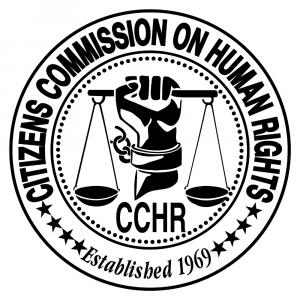Children Participating in Team Sports Have Fewer Mental Health Problems, New Research Confirms
Participation in team sports promotes social interaction and connections to others, which supports children’s mental health.
The study, published on the online journal PLOS ONE, examined data from over 11,000 U.S. children ages 9 to 13 and found those participating in team sports were less withdrawn and had less anxiety, fewer social problems, and fewer attention problems.
“Results indicate that team sport participation was associated with fewer mental health difficulties,” wrote lead author Matt Hoffman, Ph.D., of California State University, Fullerton.
The researchers suggest the reason: “Social interactions and feelings of relatedness with others are inherent aspects of team sport participation. Consequently, it is not surprising that involvement in organized youth team sport has been associated with better mental health.”
The study confirms earlier research findings that participation in organized youth sports is beneficial to the mental health of children and teens. A 2019 systematic review of data from over 122,000 adolescents indicated that “symptoms of anxiety and depression were significantly lower among sport-involved adolescents than in those not involved in sport,” researchers wrote in the Journal of Sport and Exercise Psychology.
Results from a 2021 study by Canadian researchers showed that individuals who participated in team sports from adolescence (ages 11 to 16) through young adulthood were less stressed and less likely to experience panic attacks than those who did not engage in sports.
Exercise in general has been found to be beneficial to mental health. Conversely, a lack of exercise has been linked to a higher risk of depression. In one recent study of young people, researchers from several universities used biometric and survey data from college students before and during the COVID-19 pandemic and found that as physical activity decreased, the proportion of students at risk of clinical depression nearly doubled.
“Our analyses suggest that disruption to physical activity is a leading risk factor for depression during the pandemic,” the researchers wrote.
Validation of exercise as beneficial for mental health comes at a time when research has found that many psychiatric drugs prescribed for mental health treatment are ineffective and carry the risk of serious side effects when taking or discontinuing the drugs. The Citizens Commission on Human Rights (CCHR) psychiatric database of psychiatric drug side effects search engine (www.cchrint.org/psychdrugdangers) currently lists 647 drug research studies and 414 drug regulatory agency warnings about the risk of adverse effects from taking psychiatric drugs. Many of these drugs also have serious withdrawal symptoms when stopping or reducing the dose taken.
CCHR supports safe and effective non-drug approaches to mental health and continues to raise public awareness about the risks associated with psychiatric drugs so that consumers and physicians can make fully informed decisions about mental health treatment.
WARNING: Anyone wishing to discontinue or change the dose of an antidepressant or other psychiatric drug is cautioned to do so only under the supervision of a physician because of potentially dangerous withdrawal symptoms.
The Citizens Commission on Human Rights was co-founded in 1969 by members of the Church of Scientology and the late psychiatrist and humanitarian Thomas Szasz, M.D., recognized by many academics as modern psychiatry’s most authoritative critic, to eradicate abuses and restore human rights and dignity to the field of mental health. CCHR has been instrumental in obtaining 228 laws against psychiatric abuses and violations of human rights worldwide.
The CCHR National Affairs Office in Washington, DC, has advocated for mental health rights and protections at the state and federal level. The CCHR traveling exhibit, which has toured 441 major cities worldwide and educated over 800,000 people on the history to the present day of abusive psychiatric practices, has been displayed at the Congressional Black Caucus Foundation Annual Legislative Conference in Washington, DC, and at other locations.
Anne Goedeke
Citizens Commission on Human Rights, National Affairs Office
+1 202-349-9267
email us here
Visit us on social media:
Facebook
CCHR: What We Believe
Legal Disclaimer:
EIN Presswire provides this news content "as is" without warranty of any kind. We do not accept any responsibility or liability for the accuracy, content, images, videos, licenses, completeness, legality, or reliability of the information contained in this article. If you have any complaints or copyright issues related to this article, kindly contact the author above.


